Parvovirus, commonly known as Parvo, is a highly contagious and deadly viral disease that primarily affects dogs. Once a dog recovers from Parvo, they typically develop immunity to the virus. However, there are cases where a dog can contract Parvo multiple times, particularly if they have a compromised immune system or if they are exposed to different strains of the virus.
While it is uncommon for a dog to get Parvo twice, it is essential to understand the factors that contribute to Parvo recurrence and take preventive measures to protect our furry friends. Maintaining proper hygiene practices and staying up to date with vaccination protocols are crucial for preventing the reoccurrence of Parvo in dogs.
Key Takeaways:
- Parvovirus is a highly contagious and deadly viral disease that primarily affects dogs.
- Dogs can get Parvo more than once, especially if they have a weakened immune system or are exposed to different strains of the virus.
- Maintaining proper hygiene and vaccination protocols are crucial in preventing the reoccurrence of Parvo in dogs.
- There are several reasons why a dog may be more susceptible to contracting Parvovirus multiple times, including a weak immune system, incomplete vaccination history, poor hygiene practices, and exposure to different strains of the virus.
- Certain breeds, such as Rottweilers, Doberman Pinschers, American Pit Bull Terriers, and Labrador Retrievers, may be more susceptible to Parvo, but all unvaccinated dogs are at risk.
Understanding Canine Parvovirus And Why Dogs Can Get It Again

Canine Parvovirus, or Parvo as it’s commonly known, is a highly contagious and deadly viral disease that primarily affects dogs. This devastating virus can wreak havoc on a dog’s immune system and gastrointestinal tract, leading to severe illness and, in some cases, death.
Dogs can get Parvo again, even after recovering from a previous infection. This is because the Parvovirus can mutate into different strains, and a dog that has developed immunity to one strain may not be fully protected against another.
Vaccination plays a crucial role in preventing Parvo. Properly vaccinated dogs have a higher chance of warding off the virus or experiencing milder symptoms if exposed. However, it’s important to understand that immunity to Parvovirus may not last a lifetime. Regular booster shots and adherence to vaccination schedules are essential to maintain high levels of protection.
Prevention is key in safeguarding dogs against Parvo reinfection. Good hygiene practices, such as regularly cleaning and disinfecting living areas, avoiding contact with infected dogs, and washing hands thoroughly, can help minimize the risk of exposure to the virus.
It’s crucial for dog owners to be vigilant and recognize the symptoms of Parvovirus infection, which include severe vomiting, diarrhea (often bloody), lethargy, loss of appetite, and dehydration. If a dog displays any of these symptoms, it is imperative to seek immediate veterinary care.
By understanding the nature of Canine Parvovirus, its ability to mutate, and the importance of vaccination and hygiene, we can work towards preventing Parvo recurrence and ensuring the well-being of our beloved canine companions.
Reasons That A Dog May Keep Getting Parvovirus
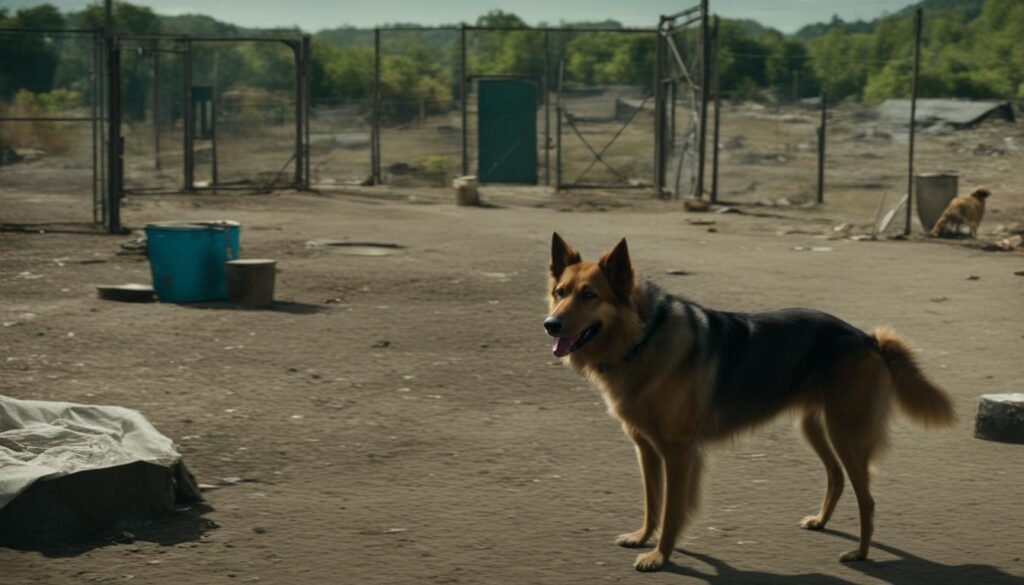
There are several reasons why a dog may be more susceptible to contracting Parvovirus more than once. These factors increase the risk of Parvo recurrence and include:
- Weak Immune System and Parvo: A compromised immune system can make a dog more prone to contracting Parvo, as the body’s natural defense against the virus is weakened. Dogs with pre-existing health conditions or those undergoing medical treatments may have a weaker immune system that leaves them vulnerable to Parvo.
- Incomplete Vaccination and Parvo: Proper vaccination is crucial in preventing Parvo, as it helps boost the dog’s immune response to the virus. However, if a dog has an incomplete vaccination history or has not received the required booster shots, their protection against Parvo may be incomplete.
- Poor Hygiene and Parvo: Parvovirus can survive in the environment for extended periods, making it crucial to maintain good hygiene practices. Dogs that are exposed to contaminated areas or come into contact with infected feces are at a higher risk of contracting Parvo.
- Exposure to Unvaccinated Dogs: Dogs that interact with unvaccinated or recently rescued dogs that have not completed their vaccination protocols are more likely to come in contact with the Parvo virus. Unvaccinated dogs can carry the virus without showing symptoms, posing a risk to other dogs.
- Exposure to Different Strains of Parvo: Parvovirus can mutate into different strains, and a dog that has recovered from one strain may still be susceptible to other strains. This means that even if a dog has previously been infected with Parvo and recovered, they may still be at risk of contracting a different strain.
- Stress and Parvo: High levels of stress can weaken a dog’s immune system, making them more susceptible to infections. Dogs that experience significant stress or changes in their environment, such as moving to a new home, experiencing the loss of a companion, or undergoing major life changes, may be more prone to contracting Parvo.
In order to prevent Parvo recurrence, it is essential to address these risk factors. Ensure your dog receives the appropriate vaccinations, maintain good hygiene practices, and minimize exposure to unvaccinated dogs or contaminated environments. Additionally, supporting your dog’s overall health and well-being can help strengthen their immune system and reduce the likelihood of Parvo reinfection.
How Many Times Can A Dog Keep Getting Parvo?
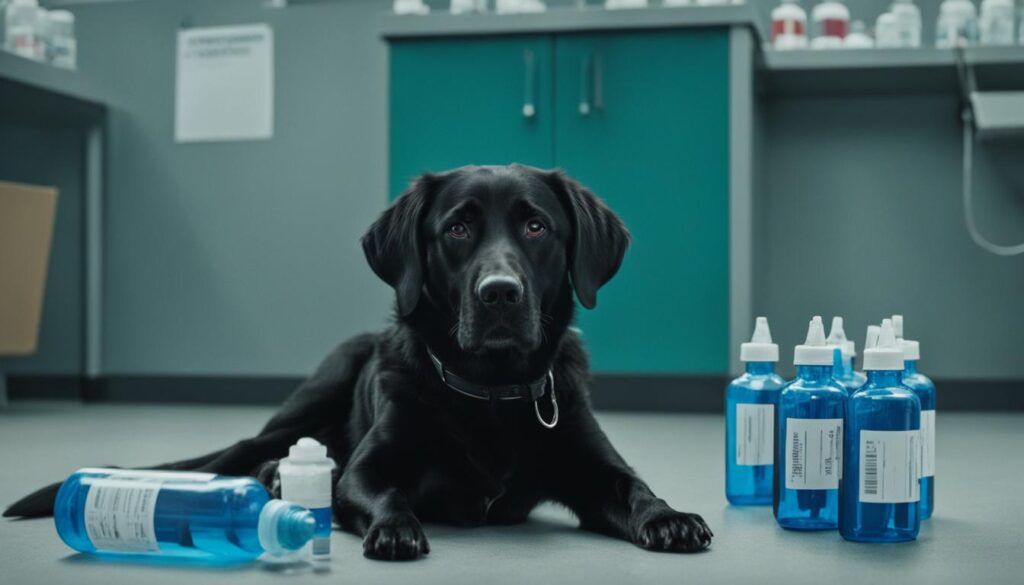
While rare, there is technically no set limit to how many times a dog can contract Parvo, especially if exposed to different strains of the virus. However, once a dog recovers from a specific strain, it typically develops immunity to that strain, reducing the likelihood of future infections.
It’s important to note that Parvo is a highly contagious and dangerous virus that primarily affects dogs. Dogs can contract Parvo through direct contact with infected feces, contaminated environments, or contact with infected dogs. The virus attacks the cells lining the intestinal tract, leading to severe vomiting, diarrhea (often bloody), and dehydration. Without proper veterinary care, Parvo can be fatal.
| Frequency of Parvo | Dog Contracting Parvo Multiple Times | Repeated Parvo Infections in Dogs |
|---|---|---|
| Rare | Yes | Can occur if exposed to different strains of the virus |
What Breeds of Dog Are More Susceptible to Parvo?
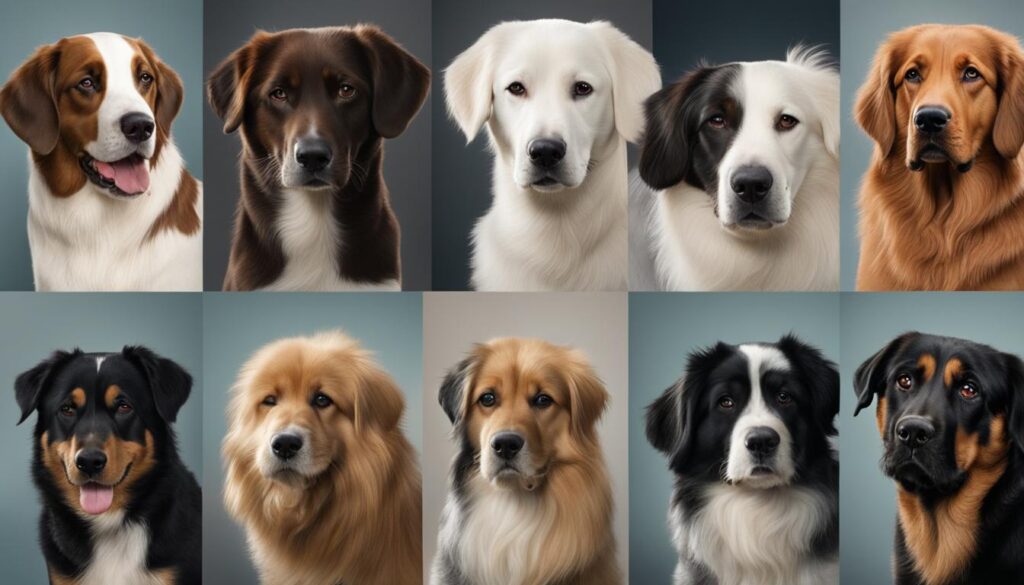
When it comes to canine Parvovirus (Parvo), certain breeds appear to be more susceptible than others. Breeds such as Rottweilers, Doberman Pinschers, American Pit Bull Terriers, and Labrador Retrievers have shown higher vulnerability to the virus. However, it’s important to note that any unvaccinated puppy or young dog, regardless of breed, can contract Parvo.
Vaccination plays a critical role in protecting dogs from Parvo, regardless of their breed. It is essential for all dog owners to understand the importance of preventive measures such as regular vaccinations and maintaining good hygiene practices.
However, it is worth mentioning that Parvo can affect any dog, regardless of breed, if proper precautions are not taken. Therefore, it is advisable to consult with a veterinarian to establish a vaccination schedule and follow recommended preventive measures for all dogs, irrespective of their breed.
Why and How Can Vaccinated Dogs Get Parvovirus?
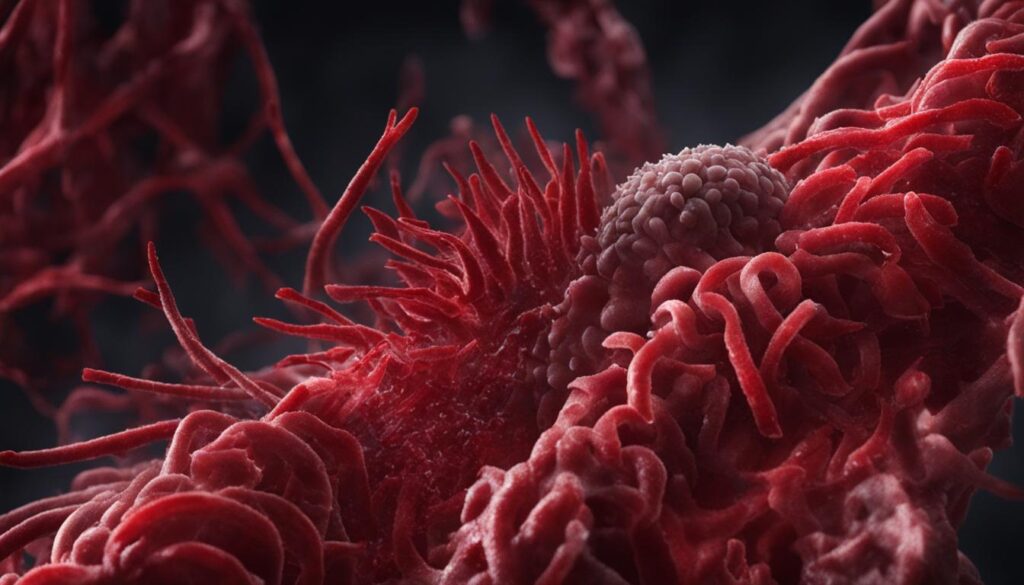
Although vaccines play a vital role in protecting dogs against Parvovirus, vaccinated dogs can still contract the virus under certain circumstances. Understanding the reasons behind this occurrence is crucial in ensuring the health and well-being of our furry friends.
One of the primary reasons why vaccinated dogs can get Parvovirus is the variability of Parvo strains. Vaccines are designed to target specific strains of the virus, but there are multiple strains circulating in the environment. If a vaccinated dog comes into contact with a different strain of Parvovirus than what they were vaccinated against, they may still become infected.
Furthermore, factors such as compromised immune systems and vaccine effectiveness can contribute to breakthrough cases. While vaccines are highly effective in providing immunity to Parvovirus, they are not 100% effective in every dog. Certain conditions, such as underlying health issues or a weakened immune system, can reduce the effectiveness of the vaccine, leaving dogs more vulnerable to infection.
It’s essential to understand that vaccines are designed to provide protection against the most prevalent strains of Parvovirus. However, as new strains emerge, it may take time for vaccines to be updated to combat these variations effectively. This highlights the importance of regular vaccinations and following veterinary recommendations to ensure the best possible protection for our dogs.
Overall, while breakthrough cases of Parvovirus in vaccinated dogs are possible, vaccines remain a crucial preventive measure against this highly contagious disease. Maintaining a regular vaccination schedule, practicing good hygiene, and providing a healthy environment are essential in safeguarding our dogs from Parvovirus.
Facts and Figures
| Fact | Percentage |
|---|---|
| Dogs who contract Parvovirus despite vaccination | Less than 5% |
| Vaccine effectiveness in preventing severe Parvo illness | Around 90-95% |
| Variability of Parvo strains | Over 15 different strains identified |
Why Do Some Dogs Get Parvo And Some Don’t?
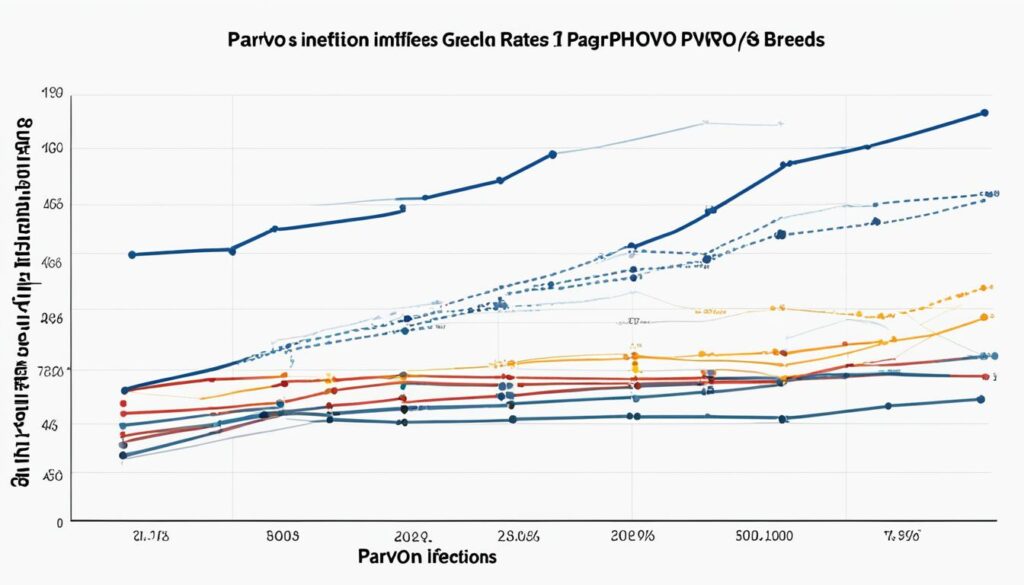
Several factors influence whether a dog contracts Parvovirus, including vaccination status, immune health, age, breed, exposure level, and strain of virus.
- Vaccination Status: Dogs that have been properly vaccinated against Parvovirus have a lower risk of contracting the disease.
- Immune Health: Dogs with a strong immune system are less susceptible to Parvo.
- Age: Puppies are more vulnerable to Parvo as their immune systems are still developing.
- Breed: Certain breeds may have a higher susceptibility to Parvo, although all dogs are at risk.
- Exposure Level: Dogs with higher exposure to Parvovirus, such as those in crowded or unsanitary environments, are at an increased risk of infection.
- Strain of Virus: Different strains of Parvovirus may vary in their virulence and ability to infect dogs.
To better understand the interplay between these factors, refer to the following table:
| Factor | Influence on Parvo Susceptibility |
|---|---|
| Vaccination Status | Lower risk with proper vaccination |
| Immune Health | Strong immune system reduces susceptibility |
| Age | Puppies are more vulnerable |
| Breed | Some breeds may be more susceptible |
| Exposure Level | Higher exposure increases risk |
| Strain of Virus | Varying virulence and infectivity |
Can You Prevent Parvo in Dogs?
Preventing Parvo in dogs is essential for their health and well-being. By implementing the following strategies, you can reduce the risk of Parvo infection and protect your furry friend:
- Vaccination: Schedule regular vaccinations for your dog to ensure they are protected against Parvovirus. Vaccines play a crucial role in preventing Parvo and boosting the dog’s immunity.
- Limiting Exposure: Minimize your dog’s exposure to infected dogs or areas where the virus may be present. Avoid public spaces where unvaccinated dogs gather and practice caution when interacting with other canines.
- Maintaining Cleanliness: Keep your dog’s living environment clean and free from potential sources of Parvo contamination. Regularly clean and disinfect their living space, bedding, toys, and food/water bowls.
- Promoting a Healthy Lifestyle: Provide your dog with a balanced diet, regular exercise, and adequate hydration. A healthy immune system can better defend against Parvo and other illnesses.
- Regular Vet Check-ups: Schedule routine check-ups with your veterinarian to monitor your dog’s health and receive professional guidance on preventive measures and necessary vaccinations.
Remember, maintaining a safe and hygienic environment, along with proper vaccination, is crucial in protecting your dog from Parvo. By following these preventive measures, you can help ensure a healthier life for your furry companion.
Can Dogs Get Parvo Twice in One Year?
While it is rare for a dog to contract Parvo multiple times in one year, it is technically possible, especially if exposed to different strains of the virus. However, once a dog recovers from a specific strain, it typically develops immunity to that strain, reducing the likelihood of reinfection within a short time frame.
Frequency of Parvo Recurrence
Parvo recurrence in dogs within a year is not common. Once a dog recovers from Parvo, their immune system builds up antibodies to fight off the specific strain they were infected with. This immunity provides protection against future infection from the same strain.
Multiple Parvo Infections
However, it is essential to note that dogs can still contract Parvo multiple times if exposed to different strains of the virus. Each strain of Parvovirus has slight genetic variations, which means that immunity developed against one strain may not fully protect against a different strain.
Preventing Parvo Reinfection
Preventing Parvo in dogs involves a combination of vaccination and maintaining good hygiene practices. Vaccination plays a crucial role in preventing Parvo infection and reducing the chances of reinfection. Additionally, practicing proper hygiene, eliminating exposure to contaminated areas, and avoiding contact with infected dogs can also help reduce the risk of Parvo reinfection.
By taking preventive measures and ensuring regular vaccinations, dog owners can significantly minimize the risk of Parvo reinfection and provide their furry companions with a healthier and happier life.
Can a Dog Get Parvo Even After Being Vaccinated?
Vaccinating your dog against Parvovirus is an essential step in protecting their health. However, it’s important to understand that despite vaccination, dogs can still contract Parvo in certain circumstances.
Breakthrough cases of Parvo infection in vaccinated dogs can occur if the dog comes into contact with a different strain of the virus than what they were vaccinated against. Vaccines provide protection against specific strains, but they may not cover all existing strains of the virus.
Additionally, the effectiveness of Parvo vaccination can vary from dog to dog. While vaccines offer a high level of protection, they are not 100% effective in every case. Factors such as the dog’s immune response and the quality of the vaccine can influence its effectiveness.
It’s also important to note that vaccines may not provide immediate protection. It takes time for the dog’s immune system to build up immunity after vaccination. If a vaccinated dog is exposed to the Parvovirus during this period, they may still contract the infection.
Regular veterinary check-ups and following vaccination protocols are crucial in ensuring the best protection against Parvo. Your veterinarian can provide guidance on the appropriate vaccination schedule and any additional preventive measures that may be necessary.
In conclusion, while vaccination significantly reduces the risk of Parvo infection, it is possible for vaccinated dogs to contract the virus under certain circumstances. Taking proactive measures, such as maintaining good hygiene practices and minimizing exposure to infected dogs or areas, can further reduce the risk of Parvo transmission.
| Parvo Vaccination | Immunity | Preventive Measures | |
|---|---|---|---|
| Effectiveness | Varies from dog to dog | Provides protection against specific strains | Follow veterinary recommendations for vaccination schedule |
| Breakthrough Cases | Can occur if exposed to different Parvo strains | May not cover all existing strains | Maintain good hygiene and minimize exposure to infected dogs or areas |
| Timing | Takes time for full immunity to develop | Requires time for the vaccine to take full effect | Minimize exposure during the vaccination period |
Can Adult Dogs Get Parvo?
While Parvo is most commonly associated with puppies, adult dogs can still be susceptible to the virus. The risk of Parvo infection in adult dogs increases if they are unvaccinated or have not received proper booster shots. However, adult dogs with strong immune systems are generally less prone to severe illness from Parvo compared to puppies.
Parvo infection in adult dogs can occur if they come into contact with the virus through contaminated environments, objects, or exposure to infected dogs. It’s important to note that the virus can survive in the environment for extended periods, increasing the chances of transmission.
Although adult dogs may have a lower risk of severe illness, they can still shed the virus and spread it to other susceptible dogs, including puppies. This highlights the importance of maintaining proper vaccination protocols and hygiene practices to prevent the transmission of Parvo.
Parvo Susceptibility in Older Dogs
Older dogs, just like adult dogs, can also be susceptible to Parvo infection. While age itself is not a direct risk factor, older dogs may have weaker immune systems due to various factors such as age-related decline, underlying health conditions, or medications. These factors can make them more vulnerable to severe illness if they contract Parvo.
Preventing Parvo in Adult Dogs
Vaccination remains the cornerstone in preventing Parvo infection in dogs of all ages, including adults. Adult dogs should receive their initial Parvo vaccination as puppies and continue to receive booster shots as recommended by their veterinarian.
In addition to vaccination, maintaining good hygiene practices is crucial in minimizing the risk of Parvo. This includes regularly disinfecting commonly shared areas, keeping dogs away from environments with a high concentration of unvaccinated or potentially infected dogs, and avoiding contact with feces or vomit from unknown sources.
Regular veterinary check-ups and discussions about a dog’s specific lifestyle and environment can also help determine the necessary preventive measures for Parvo. By following these precautions, owners can significantly reduce the likelihood of their adult dogs contracting Parvo, ensuring their overall health and well-being.
Signs and Symptoms of Parvo Infection in Adult Dogs
| Signs and Symptoms | Description |
|---|---|
| Lethargy | Generalized weakness, lack of energy |
| Loss of appetite | Refusal to eat or drink |
| Vomiting | Frequent throwing up, often containing blood |
| Diarrhea | Severe, often bloody diarrhea |
| Dehydration | Excessive fluid loss from vomiting and diarrhea |
| Fever | Elevated body temperature |
Recognizing the signs and symptoms of Parvo in adult dogs is crucial for early detection and prompt veterinary intervention. If an adult dog shows any of these symptoms, it’s important to seek immediate veterinary care to increase the chances of successful treatment.
Wrapping Up
In conclusion, it is possible for dogs to contract Parvo twice, although it is not a common occurrence. The best way to prevent Parvo is through proper vaccination and maintaining good hygiene practices. Vaccination plays a crucial role in protecting dogs from Parvovirus, but it’s important to remember that immunity may not last a lifetime.
Regularly consulting with a veterinarian to establish a vaccination schedule is essential. Vaccines should be administered according to the recommended protocol to ensure maximum effectiveness. Additionally, practicing good hygiene, such as regular cleaning of the dog’s living area, washing hands before and after handling unvaccinated dogs, and controlling exposure to infected environments, helps reduce the risk of Parvo transmission.
It is vital to understand that prevention is key in safeguarding your dog’s health. By following proper vaccination protocols and maintaining a clean and healthy environment, you can significantly reduce the risk of Parvo recurrence. Remember to stay vigilant in protecting your furry friend and consult with your veterinarian for personalized advice on preventing Parvovirus and keeping your dog healthy.
FAQ
Can a dog get Parvo twice?
While it is uncommon, a dog can get Parvo twice, particularly if they have a compromised immune system or if it is a different strain of Parvo. Once a dog recovers from Parvo, they typically develop immunity. However, maintaining proper hygiene and vaccination protocols remains crucial in preventing recurrence.
Why can a dog get Parvo again?
Canine Parvovirus, or Parvo as it’s commonly known, is a highly contagious and deadly viral disease that primarily affects dogs. Dogs can get Parvo again because the virus can mutate into different strains, and a dog that has recovered from one strain may not be fully protected against another. Vaccination plays a crucial role in preventing Parvo, but it’s important to understand that immunity may not last a lifetime and maintaining good hygiene practices is essential.
What factors contribute to a dog contracting Parvo multiple times?
Several reasons why a dog may be more susceptible to contracting Parvovirus more than once include having a weak immune system, an incomplete vaccination history, exposure to unvaccinated dogs, exposure to different strains of Parvo, poor hygiene practices, and high levels of stress. Addressing these risk factors is crucial in preventing Parvo recurrence.
How many times can a dog get Parvo?
While rare, there is technically no set limit to how many times a dog can contract Parvo, especially if exposed to different strains of the virus. However, once a dog recovers from a specific strain, it typically develops immunity to that strain, reducing the likelihood of future infections.
Which dog breeds are more susceptible to Parvo?
Certain breeds, such as Rottweilers, Doberman Pinschers, American Pit Bull Terriers, and Labrador Retrievers, appear to be at a higher risk for Parvo. However, it’s important to note that any unvaccinated puppy or young dog, regardless of breed, can contract the virus. Vaccination and proper preventive measures are key in protecting all dogs from Parvo.
How can vaccinated dogs still get Parvo?
Vaccinated dogs can still contract Parvovirus if they come in contact with a different strain of the virus than what they were vaccinated against. Additionally, factors such as compromised immune systems and vaccine effectiveness can contribute to breakthrough cases. Vaccines are not 100% effective in every dog, and strains of the virus can vary, which highlights the importance of regular vaccinations and following veterinary recommendations.
What factors determine whether a dog gets Parvo?
Several factors influence whether a dog contracts Parvovirus, including vaccination status, immune health, age, breed, exposure level, and strain of virus. Vaccinated dogs and those with a strong immune system are less likely to get Parvo, while puppies, certain breeds, and dogs with higher exposure levels may be more vulnerable. Additionally, different strains of the virus can impact susceptibility.
How can Parvo in dogs be prevented?
Preventing Parvo in dogs involves several strategies, including vaccination, limiting exposure to infected dogs or areas, maintaining cleanliness and hygiene, promoting a healthy lifestyle, scheduling regular vet check-ups, and controlling the dog’s environment. These measures help reduce the risk of Parvo infection and protect the dog’s overall health.
Can a dog get Parvo twice in one year?
While it is rare for a dog to contract Parvo multiple times in one year, it is technically possible, especially if exposed to different strains of the virus. However, once a dog recovers from a specific strain, it typically develops immunity to that strain, reducing the likelihood of reinfection within a short time frame.
Can a vaccinated dog still get Parvo?
Vaccinated dogs can still contract Parvovirus if they come in contact with a different strain of the virus or if the vaccine has not had enough time to take full effect. While vaccines offer protection, they are not 100% effective in every dog. It is important to follow vaccination protocols and consult with a veterinarian to ensure the best protection against Parvo.
Can adult dogs get Parvo?
While Parvo is most common in puppies, adult dogs can still contract the virus, especially if they are unvaccinated or have not received proper booster shots. Adult dogs with strong immune systems are generally less susceptible to severe illness from Parvo compared to puppies, but the risk is still present.






